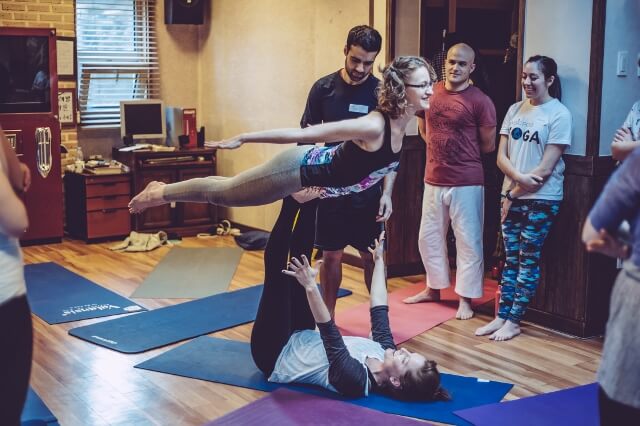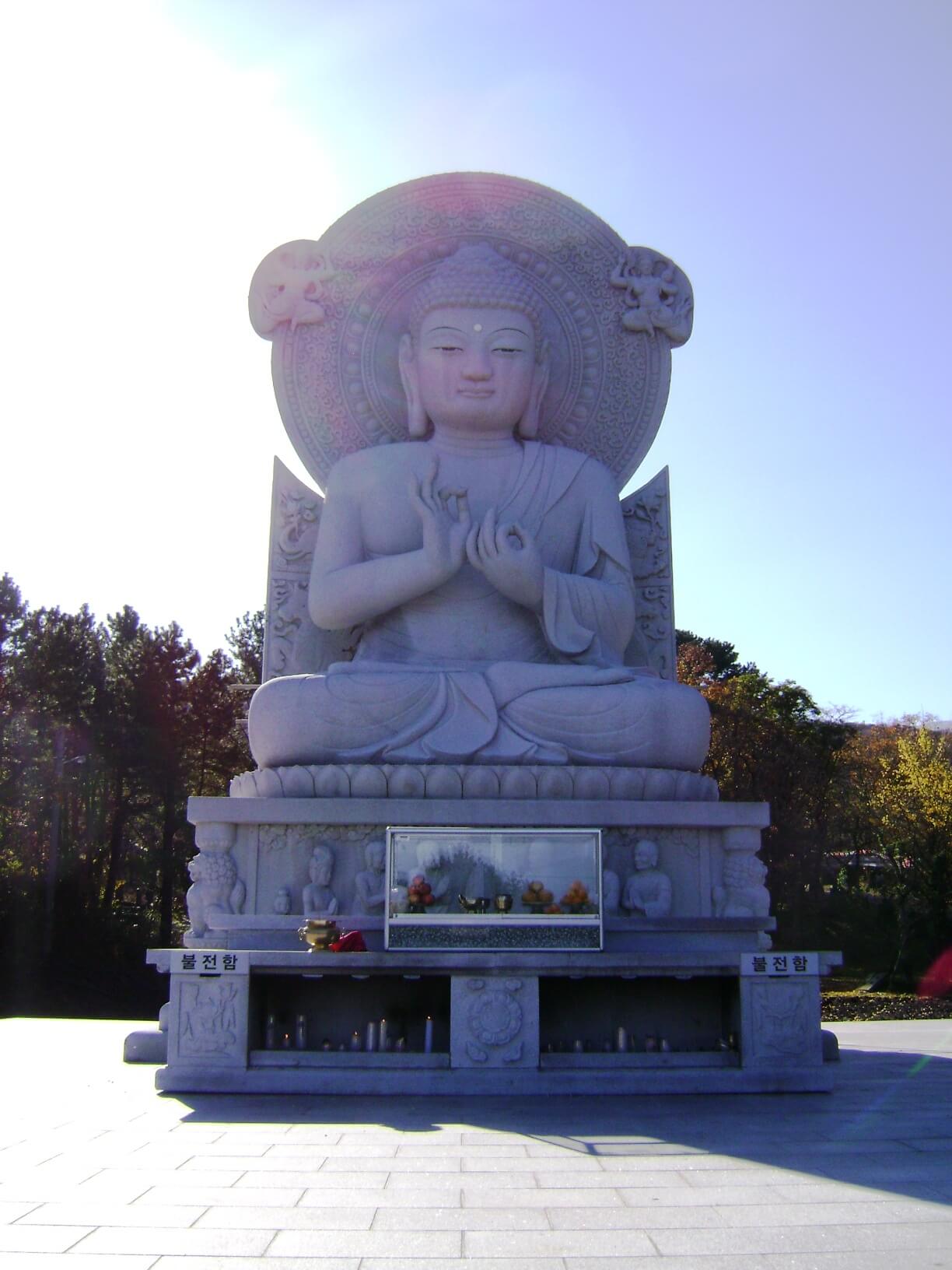My New Year’s intention for 2016 was two-fold: 1) Live fully empowered in each moment, and 2) Love fearlessly.
Well, when that’s what you’re putting out, take a guess what you’ll be getting back. Yeah, be careful what you wish for.
This year started with a bang of falling in love. After a year and a half of taking self-time, being intentionally single, diving into my own practices and a long period of solo integration, I went to the dangerously transformative island of Koh Phangan, Thailand and was struck by an incredible Australian woman who challenged me to be a more truthful version of myself. Not that I had been lying exactly. But I had been hiding behind a lot of mechanisms and patterns that kept me safe. I exactly hadn’t been loving fearlessly.
Like not being truthful about my sexuality.
Here I am, an empowered sexuality and relationship coach and facilitator. And when I did some investigation, I found that I still was carrying about 35 years of shame about being bi-sexual…and polyamorous. I was very good at hiding under the framework that if someone wanted to know something about me, they’d ask! But I don’t often hear people walking around asking, “What’s YOUR sexual orientation? Are you in open relationships?” Most people in America live under the heteronormative assumption. And I’ve surely been guilty of that as well.
So I guess you  could call this my coming out. It wasn’t exactly my intention to fall on the heels of Seattle Pride and the tragedy in Orlando. But I do strongly believe that these kinds of tragedies can effect change, personal empowerment and political shifts worldwide. Like perhaps supporting marriage equality in Australia (did you know gay marriage is explicitly illegal nationwide??? What???) and encouraging people to step into the most authentic version of themselves.
could call this my coming out. It wasn’t exactly my intention to fall on the heels of Seattle Pride and the tragedy in Orlando. But I do strongly believe that these kinds of tragedies can effect change, personal empowerment and political shifts worldwide. Like perhaps supporting marriage equality in Australia (did you know gay marriage is explicitly illegal nationwide??? What???) and encouraging people to step into the most authentic version of themselves.
So what is loving fearlessly, for me? First, it’s embracing all the parts of me and loving them all equally and fully. Not just the successful, socially acceptable ones. But the ones that have brought me decades of shame and embarrassment like my near-lifelong fear of open water (cured!) or the fact that I never learned to ride a bike (still haven’t). Those things are pretty hard to share publicly.
The next step is to know that your relationships will cause you pain at some point. They just will. And that the pain is totally worth it. Rumi says, “You have to keep breaking your heart until it opens.” Tiptoeing into love will never break you open to actually knowing love. Staying safe will never crack your threshold to truly knowing yourself and connecting deeply with another soul.
That doesn’t mean it needs to hurt or that we should stay in loveless relationships. But sometimes the lovelessness is actually caused by our fear of going deep, being transparent and trusting to our partner enough to be vulnerable. If you’ve never read or seen Brené Brown, start with her TED talk. And then read her books. All of them. I honestly had no idea the places in me that were closed until I started ripping off the Band-Aids and looking beneath the surface, embracing all that muck as the actual fabric of my being and what’s got me here thus far. And then comes the ability to transform and let the lotus flowers sprout.
I can’t tell you how often people say to me that they want deep connection but they’re afraid to get hurt. I will tell you that it hurts. Having the aforementioned amazing Australian woman here for two weeks and then having to drop her at the airport a week ago hurt. It still hurts. It will continue to hurt until we see each other again. And…my heart is breaking open to new capacity which is flowing over to my clients, my family, the woman who just served me a cup of tea, my roommates who had to endure our lovesick ways, etc.
How is that possible? How can we turn the pain of separation and love wounds into more love? By recognizing that what you’re experiencing is actually love. It is unconditional love that you choose to stay in no matter how much it hurts. It is going in and in, to quote Danna Faulds. The feeling of separation which is the cause of our pain is our original wound of being separate from everything – from our connection to the Divine. And the bliss of reconnection, experiencing ourselves as the mystical unknown that we are is worth a million heart breakings.
Every time we crack the shell we’ve built over our hearts and minds, we allow ourselves to be more loving and more loved. Not Disney, romantic comedy love. But actual love which flows freely regardless of who or what is in front of you. It takes remarkable courage to let your heart break again and again so that you may let light in the cracks. You will feel more than you’ve ever felt. And I think this is what all religions and spiritual paths are teaching us: to feel it all, to embrace it all, to experience it all, and to turn it all into love.
How to know if you’re loving fearlessly
Are you loving fearlessly? Are you investigating all the edges, rough patches, sticky places and dark hiding spots where you don’t want to look? This means embracing shadow. And shame. And the places where we’re afraid to be messy in favor of “saving face.”
Here are 4 things to consider when investigating how fearlessly you’re willing to love. Be kind to yourself as you answer them. If this is a process you’re just starting or are already immersed in, be sure to create some support systems for yourself. Talk to your loved one about this journey and let them know you might need some extra cuddles, Kleenex, and more air time than usual. And be prepared to need that and ask for it. Also if you know people going through this process, let them know they can be real with you without judgment or the need to fix things. They’ll appreciate it more than you’ll ever know.
1) What are you lying about?
To yourself? To your partner? To your community?
What parts of yourself do you just omit from conversations? Especially things like mistakes and embarrassments. We don’t need to constantly talk about our failures, but we also don’t need to be afraid to share them and be a little vulnerable. It will probably also inspire someone else to be more open to the things they’re not so proud of. Being vulnerable is numero uno importante when it comes to loving fearlessly.
Whatever you’re the most afraid to share, especially those skeletons that are dusty and dank from rotting in your closet for decades, give them some air time with people you trust. You will feel years lighter and more authentically yourself. And better yet, stopping the lies – which we all tell to maintain our precious image in our different social circles – makes less mental clutter because we have less to remember and less stories to keep straight. More space to show up and just be you.
Another revelation I had of late was that I loved being involved with my friends’ integrated communities, but I was terrified to do that myself. I tried to keep people separate and compartmentalize all the parts of my life. Opening all of these boxes and letting them mix has felt really messy and scary. And relieving. And surprisingly inspiring. It gives me room for my life to cross-pollinate a little bit, for my friends and lovers to know about each other, and to transfer the lessons I learn from one life situation into another.
2) Are you having the hard talks?
Another place to look is if you’re talking about that stuff that makes you cringe. With a new lover recently I had the STI/safe sex conversation which used to make me want to run and hide in a corner. After 5 years of being poly, I’ve boiled mine down to a few sentences of pertinent information and relevant questions that get it all out in the open and allow us to enter into trusting space, compassionate communication, and honesty. I spent my younger years being pretty sexually open and sex-positive. But I wasn’t taught that these are things you talk about or how to talk about them which led me to believe I was doing something wrong. And when I do something wrong, my inner demons love to persecute me. Mercilessly.
Someone recently said to me, “I don’t usually talk about that in my relationships.” Whatever that is for you, start talking about it! Where you feel dark and squeamish, there are most definitely demons haunting you and holding you hostage. My family didn’t used to talk about our core wounding, how we’ve hurt each other and what we’ve learned from each other. But we’re starting. And I feel a lot less elephants in the room and eggshells I have to carefully step around and avoid. Which frees up so much energy to actually be myself.
3) Are you making mistakes?
Love is messy.
Period.
If you’re not making mistakes and learning from them, you’re probably just repeating the same patterns and assumptions that you learned from your parents, teachers, movies or your society. Here’s a great conversation starter with partners and lovers: what’s a mistake you’ve made recently? What have you learned? How can they help hold you accountable for seeing that pattern when it comes up again?
To undo an ingrained pattern takes WAY more work than creating the pattern in the first place. Recognize that it’s going to come up again and the more people you have who can compassionately remind you that “you’re doing it again,” the more likely you are to grow out of habits that no longer serve you.
4) Do you say “I love you”?
When was the last time you stopped an important person in your life to tell them you love them? A family member? A chosen family member? A cousin? A co-worker or co-leader? Someone in your community? Do you tell people you love them? Or show them in different ways? When and how?
I used to be in the “we haven’t said I love you yet” camp in my intimate relationships. Where one person quietly says “I love you” after months of awkward dating and working up to those all-important, make-or-break, could-leave-you-feeling-horribly-uncomfortable words. But I also didn’t used to know how to love fearlessly. In a way that loving someone isn’t wrong and doesn’t need to be reciprocated.
It’s actually okay to say I love you and not have the other person say it back. Because love isn’t dependent on someone else’s feelings. It’s an unconditional gift that you offer from the heart because you want them to know they are loved, supported and cared for. Which doesn’t make them responsible for your love or feeling a certain way about you. When you offer love in this way, there is no disappointment or rejection. Just love.
One little trick to this is also discerning if your loved ones are actually hearing you when express love. They might not speak the same language as you when it comes to giving and receiving love. In my family we often say “I love you,” but I spent a chunk of my childhood feeling unloved because of the walls I had built to receiving. Check in with your families, friends and intimate relationships and find out how others in your life feel most loved. They might need you to translate your love expressions into the language of physical touch, kind words or acts of service. And you might need to ask them to do the same.
Love rests on no foundation.
It is an endless ocean,
with no beginning or end.
Imagine,
a suspended ocean,
riding on a cushion of ancient secrets.
All souls have drowned in it,
and now dwell there.
One drop of that ocean is hope,
And the rest is fear.
~Rumi
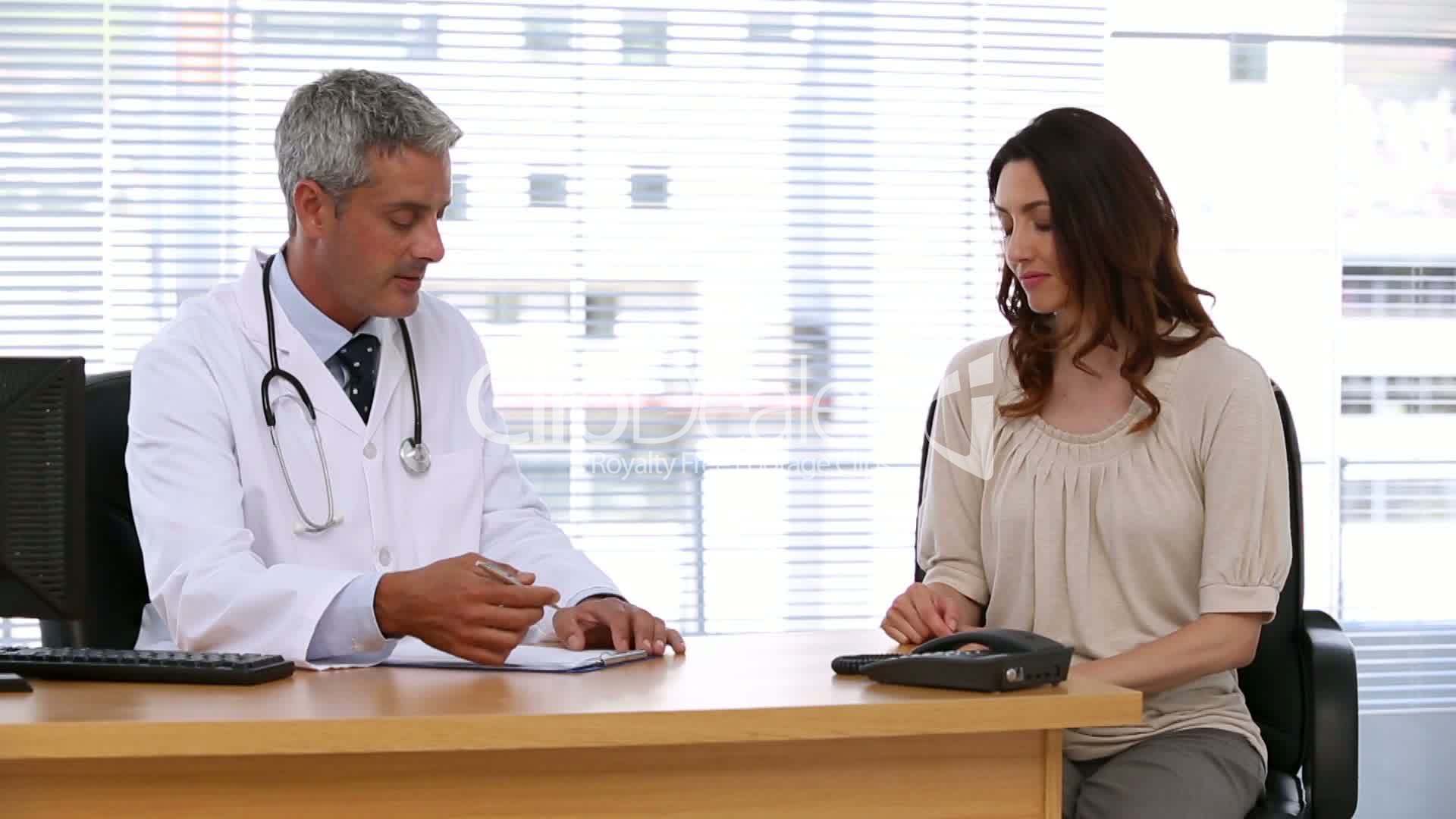
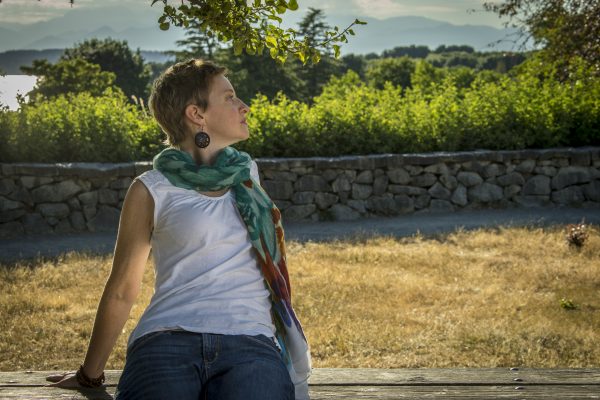


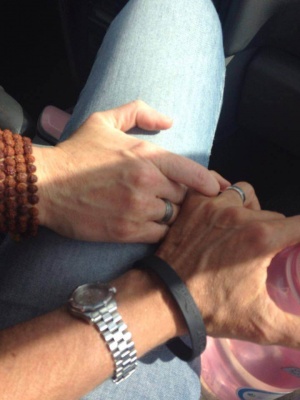
 could call this my coming out. It wasn’t exactly my intention to fall on the heels of Seattle Pride and the tragedy in Orlando. But I do strongly believe that these kinds of tragedies can effect change, personal empowerment and political shifts worldwide. Like perhaps
could call this my coming out. It wasn’t exactly my intention to fall on the heels of Seattle Pride and the tragedy in Orlando. But I do strongly believe that these kinds of tragedies can effect change, personal empowerment and political shifts worldwide. Like perhaps 
